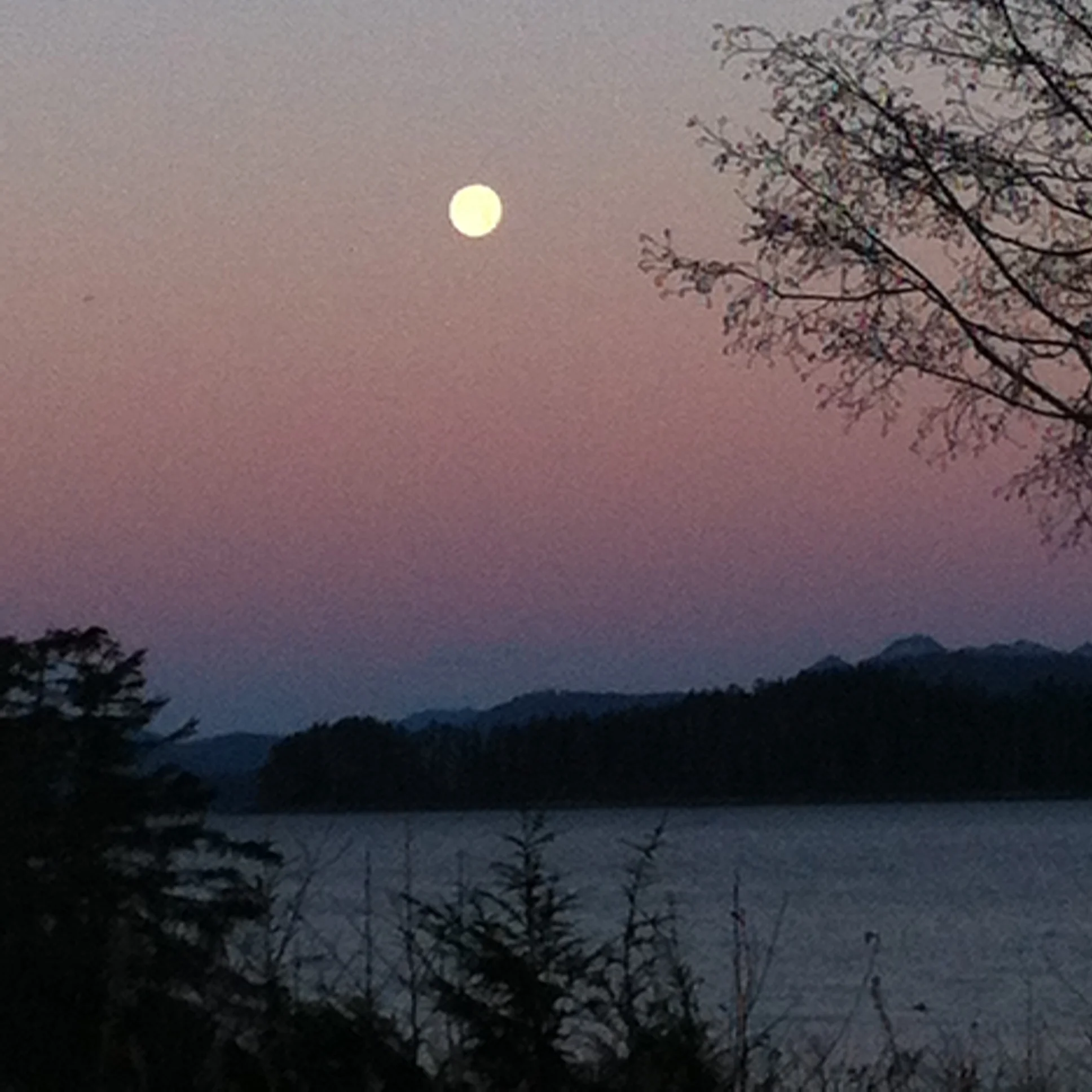Hard rain for a few minutes and then clearing, then downpours again. I need more words for the different types of rain.
For Humanities 120 this week Seth Kantner called in from Kotzebue. He's the author of Shopping for Porcupine and Ordinary Wolves. He is a natural talking to classes with his storyteller's tone, who is comfortable around a fire or a coffee pot, or on the phone with a friend. He is self effacing but...I've learned, partly from self reflection, that self effacement often protects a healthy ego...which is what someone needs who pushes himself.
Though his first book was fiction, I believe Seth Kantner is a truth teller down to his bones. He is both more empathetic and tougher than almost anyone else I've ever met, which are both good qualities for a truth teller. (I hate the term "non-fiction writer")
You might already know this from his work...but he was born in a sod igloo some two hundred river miles from Kotzebue on the south side of the Brooks Range. His parents were back-to-the-landers and he was raised wanting more than anything to be an Inupiat hunter but he was white. His books are almost romantic parables of the boy raised in the wild, if they weren't so honest and realistic about the harshness of the conditions. He loved the dogs that pulled his sled, he told us but a dog's life had no real meaning or value and was sacrificed at the first hint of slowing the progress of the team. He admired nothing more than the old Native ways, but found hard times and ugly conditions along with the friendships in the village. The gift of his writing is that he says what he encountered and he doesn't color it up to fit anyone’s mythology or fashion, often it's brutal...and ugly.
Brutal on himself: he spoke to our class about his choices and why he made them after he left his home school environment in the wild, went to college in Fairbanks and Montana then came back to live near his old homestead, in the far north. I asked him about the "sense of place" in his own writing, and he said characteristically, "I don't really know about literary terms. I just know that I don't really want to write about anything other than this place. I've been to Sitka and it's beautiful. I've been lots of places in the world now and they are interesting but they are not my country...they are not the place I can tell stories about...or write about I guess."
I asked him to compare himself to his old homestead and what qualities did they share, he said, "Wow...I don't know...disorganized, windblown, maybe...open to the elements.."
"Remote?" I suggested.
"Yeah" Remote...hard to get to, I suppose."
Later we were talking about how he was raised and his life now. He said, "It was interesting, I just remember that doing almost anything was hard...." (He mentioned there were no clocks and there wasn't the usual rush or time anxiety.) "It was hard but I liked it that way and I still do. I like doing things absolutely the hardest way." He told the story of asking his wife if she wanted to go camping and she said, "Yes, I want to go camping, but I don't want it to be hard," and Seth thought to himself, "Why would I want to do that? You know, do it so it’s easy."
We agreed that writing is hard. I say that to Jan all the time when I'm working on something. Writing is hard. Seth said he would much rather butcher a moose than write a paragraph for one of his columns for the Anchorage paper. I don't feel that way...I'd rather write a paragraph than skin a moose....but I'd be happy to set aside any paragraph to have some good moose meat to eat. Yet, we are both dyslexic, and writing will always be hard. Making the transition from the music we hear in a storyteller's voice to the little black marks on the page, is tortuous... particularly in the beginning. It's hard to understand if you don’t have your brain wired this way, but for a dyslexic to spell correctly is like a blind person pretending to see. Certain things just don’t make it from the eyes to the brain correctly: words as collections of letters, faces into our memories, sometimes. But the upside for the weirdly wired brains is that we hear music everywhere and we can remember it. We can even see it sometimes. But as I said...it's hard to explain.
Seth is an extraordinary man with all of the talents and struggles of a dyslexic writer, and maybe his books are so great just because they were so frigging hard to write. Why would he want to do something easy? His books have gotten a lot of attention and they deserve it. His photographs are stunning.
He told our class how he loved it when visitors would come by the homestead: “It would be one thing if a bear came up and licked the window but if a visitor came by THAT was exciting.” If you ever get a chance to visit with Seth Kantner you should take it, you can hear the tone of the visitor who has come by dog team to rest his bones and laugh.
This is an extraordinary and authentic voice. Find it in his two books and online. He has surprises for you and he might challenge some of your assumptions about life in the north, but nothing good is ever easy I suppose.
So much rain tonight
the gutters flow black as blood
under the street lamps.
jhs--Sitka, AK


